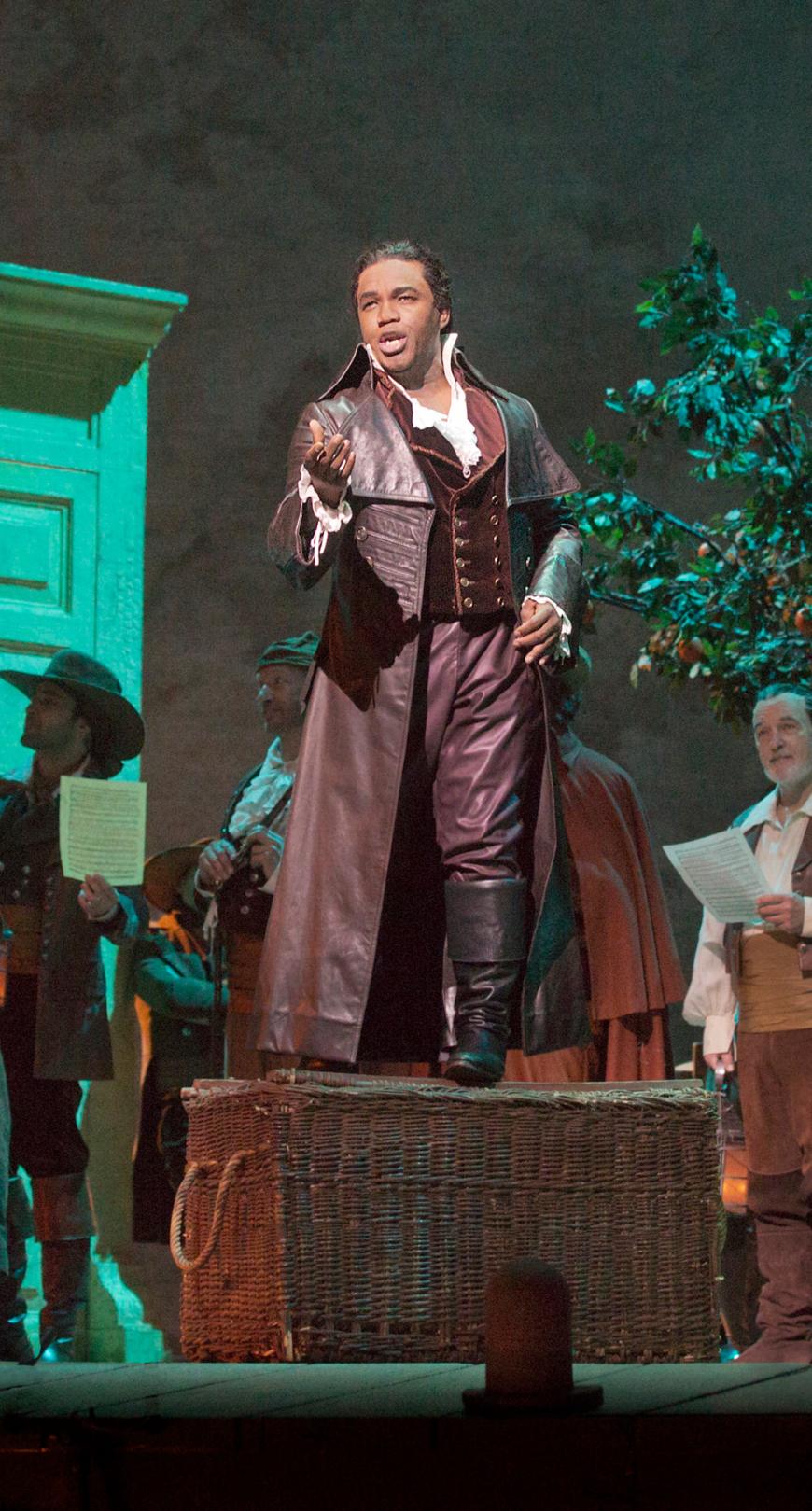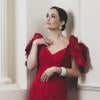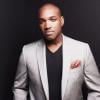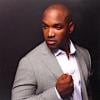
Lawrence Brownlee, the star bel canto tenor, has performed at opera houses around the world. Alex Ross, in The New Yorker, called Brownlee “one of the most impeccable stylists on the opera scene” and praised his thrilling “daredevil virtuosity,” echoing the near-universal praise of other critics and opera fans.
A distinguished visiting faculty member at The Juilliard School and artistic advisor for Opera Philadelphia, Brownlee also advocates for increasing diversity in classical music and opera. After the murder of George Floyd in 2020, the tenor commissioned a collection of Black composers — Damien Sneed, Brandon Spencer, Jasmine Barnes, Joel Thompson, and Shawn E. Okpebholo — to write songs setting the poetry of the Harlem Renaissance. The result was the Grammy-nominated recording Rising. On Feb. 29, Brownlee and pianist Kevin Miller will present selections from the album, along with bel canto arias, in a recital at Herbst Theatre sponsored by San Francisco Performances.
Brownlee talked to SF Classical Voice about using his platform to bring other people of color into classical music, getting cast in an opera before he saw one, and how the success of Rising owes in part to the album’s musical range.

Where did the idea for Rising come from?
I was thinking about how I can use my art to create space for other people like me, people of color. I remember thinking about the whole George Floyd incident that happened right smack dab in the pandemic, when people had to be at home listening and watching. We couldn’t get away from it. Some of the other terrible things that have happened in history, people had an excuse — they had work, they had other things that could kind of take their focus off the thing without really seeing it. But I think during the pandemic, we were all grounded essentially and at home. So that made us have to listen.
I began to think about what happened and to be involved in industry talks and give my perspective, as an artist, about opportunity. I thought, “I have the platform to open space for others.” I thought, “I get a chance to travel the world singing Mozart, Strauss, Handel, and everything else, and it would be great, when I’m asked what I want to program, to be able to bring [contemporary] works by African American people who have their own artistic voices.”
Had you always been interested in the Harlem Renaissance?
Yes, I remember as a young boy reading a fair amount of Langston Hughes, and I just remember his books and his poetry. That spoke to me. Him and James Baldwin [who was born during the Harlem Renaissance] — of course he’s another one. Zora Neale Hurston is another voice that spoke to the plight of Black people in the United States. So I thought, “Why not use people who inspired myself and others as part of the vehicle that pushes forward this project [so] that people can get their own musical voices out there?” That’s kind of the genesis of the project — wanting to use what was meaningful to me and potentially meaningful to other people as well.
How did the conversations with the composers go?
In conversations with my team, we identified several poems. And we had to do our homework because Zora Neale Hurston and James Baldwin, for example, their works were not accessible because they weren’t in the public domain. It has to be 75 years after their death. So we talked about Langston Hughes, Arna Bontemps, Claude McKay, and others. Then we presented a list to the composers and said, “We would like for you all to pick.”
Did you tell them what you wanted in terms of the music or let them do what they wanted?
Basically, I told them that it was important for them to feel like their true artistic voice could be heard and there weren’t any limitations. I told them what I felt my abilities were, and they all knew my singing to some extent. I told them what was comfortable and which range I would like to stay in. I can hit an occasional high note here or there, but it doesn’t have to be all high. They missed that memo. [Laughs.] They would all come back and say, “Well, I know you can do it, and this is the key that it works in.” They were absolutely flexible. I just didn’t want them to feel like they had to somehow fit their artistic vision into what I want.
Is it very different singing these songs as opposed to opera?
I think opera is interesting because a lot of times, people feel like they don’t have to be as expressive an artist. There’s a lot of things around you — costumes, lights, other people onstage, orchestras, choruses, sometimes animals. When you get on the recital stage, it’s all stripped away. It’s just you and, in my case, the pianist, and you have to take people on a journey. The demand is higher. Usually you don’t have a costume piece that is so interesting that half of the time you’re singing, people are [going], “Oh my gosh, look at that amazing costume!” I think the onus is on the artist to be the most communicative, expressive storyteller that they can be.

What was the first opera you were in?
It was The Magic Flute, which is a great entree into opera. And I remember having a colleague of mine say to me, before I even knew I was cast, “Hey, you’re a Tamino.” And I said, “What is a Tamino?” She said, “You’re cast in the opera as Tamino.” I didn’t even know, but my undergrad teacher had cast me. So before I ever saw [an opera], I was actually in one. That experience was eye-opening. It wasn’t much different than musical theater in some ways, but I appreciated it. Then I saw an opera, The Ballad of Baby Doe, maybe six or seven months later, at Indianapolis Opera. I thought, “Wow, this is cool.” I got a chance to see it in its truest form. So I was like, “OK, this is something that I enjoy, and let’s see where it takes me.”
You’ve been trying to make classical music more accessible to people of color. What are the changes needed to make that happen?
One of the biggest things that’s important for opera or any type of classical music is that people appreciate when they see people who look like them. First, you have to have an affinity or an appreciation for the art form, but seeing someone where you can self-identify — like if you think about golf and Tiger Woods or tennis with Serena Williams. ... People will become more interested just because they see that they have a place in it themselves. That’s the part of it.
Also, I think it’s important to make sure that we don’t dumb down the art form at all. Present it in its truest form, but tell compelling stories that are updated sometimes and accessible. Even something as simple as welcoming people into the opera house is important. It can’t be this elitist thing anymore. It needs to be something that is meant for the people, that tells the stories of all people, and those efforts will go a long way to making it even more accessible. Also, it’s important for people like me to be cheerleaders for the art form and validate it and show its importance, its beauty, its relevance in our lives today.
I tell people all the time that I’m really a jock. I’m a guy who loves sports and talking about fantasy football. I think a lot of people who appreciate all those other things I like would be open to exploring classical music, opera, and what have you. Many of my fraternity brothers, they thought it wasn’t their thing, but they’ll come support me, and they really love it.
What do you think people are responding to about Rising?
It shows the diversity of our sound. When you think of all the composers who are represented, all the voices are so different, and I think you can appreciate the influences that touch people. For example, you can see that Damien Sneed has a strong background in jazz and gospel. Then you can see Joel Thompson’s love for tight-knit harmony that was influenced by people like Take 6. You can see the strong gospel element in Jasmine Barnes. I think Shawn Okpebholo probably loves John Cage and maybe even Philip Glass because of the way [Okpebholo] writes and orchestrates and puts things together. People appreciate that. It shows that [Black Americans] are not a monolith.
Do you feel like things have changed a lot in terms of opera being more accessible to everybody?
I think so. It’s work that continues to be done and that we have to consistently invest in. It is engagement, which is like the gear of a car [that] has to be constantly engaged in order for it to move forward. So artists like myself need to continue to be engaged. When you see that opera houses are producing things like Terence Blanchard’s works and Anthony Davis’s — you’re programming them and artists like me and some of my other colleagues. You’re diversifying the programming a bit, even doing some Florence Price with symphony orchestras. I think trying to create initiatives with different entities, civic groups in the various cities, and all this collective effort are what’s really important to see the change.
And I do see the change. It is not a rare thing to see Black people, Asian people, and Hispanic people attending a classical performance. It’s not rare anymore. The numbers are growing. Last night I was in Vienna, and I was at the Wiener Staatsoper at the opera ball. And I saw several people of African descent and Asian people. When I first went years ago, it was 99.5 percent white Europeans.




